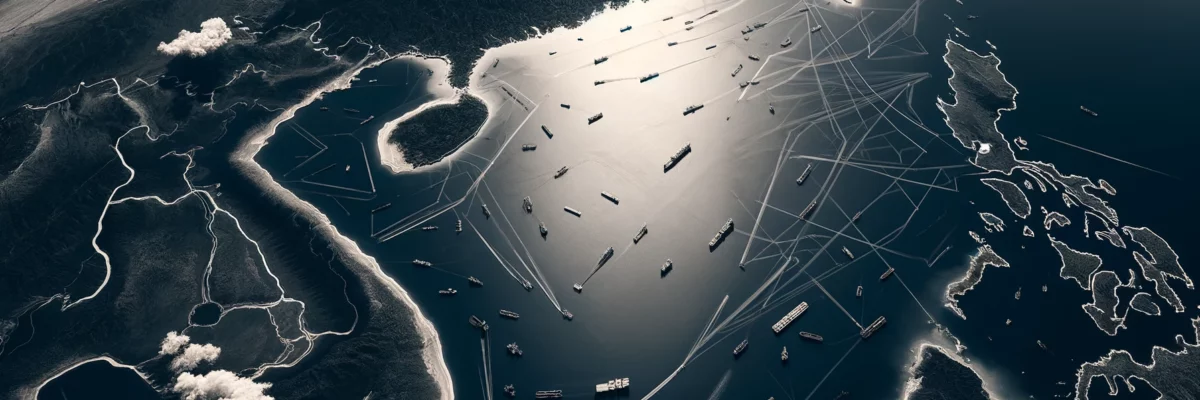
The South China Sea, a key throughway for transportation and trade, has become a hotspot of tension, particularly at Second Thomas Shoal, claimed by both the Philippines and China. Amid the broader focus on the Taiwan Strait, this dispute poses huge implications for logistics and trade in Southeast Asia.
The Philippine government asserts sovereignty over Second Thomas Shoal, strategically positioned on its continental shelf.
China contends historical ownership, dating back millennia, and has intensified its presence in the region, challenging Philippine sovereignty.
The International Tribunal of the Law of the Sea supported Manila’s claims in 2016.
China disregarded the ruling, prioritizing control over the South China Sea—a key trade route facilitating over $3 trillion in commerce annually. Beijing’s coercive actions, documented by the U.S. Department of Defense, aim to assert dominance and influence operational activities, raising concerns for regional stability and trade security.
Tensions have escalated over two decades, with confrontations escalating in recent years. China’s aggressive tactics, which include blocking supply boats and employing water cannons, underscore its determination to assert control.
The Philippines has adopted an “assertive transparency” strategy, exposing Chinese actions to the international community. President Ferdinand Marcos Jr. has vowed to defend against Chinese aggression, enhancing maritime security measures. The Philippines seeks to bolster its defense capabilities when collaborating with allies like the United States and Japan to deter Chinese revisionism and safeguard regional stability.
However, experts caution against overreliance on military exercises and advocate for tangible consequences for China’s actions. Suggestions include regular U.S. Navy escorts for Philippine vessels and strategic planning to counter Chinese coercion effectively.
As the situation escalates and additional stakeholders get involved, the standoff in the South China Sea poses challenges for regional logistics and trade. Practical diplomatic efforts and collaborative security initiatives are essential to mitigate risks and uphold the integrity of maritime commerce in Southeast Asia.
The ongoing Red Sea crisis disrupts global ocean freight, with vessels rerouted around the Cape of Good Hope, causing 14 to 21-day delays. Congestion at ports and equipment shortages persist, compounded by increased booking volume and carriers prioritizing higher-paying freight.
Panama Canal congestion exacerbates disruption, with vessels expecting a 10 to 14-day delay. Carriers implemented General Rate Increases (GRIs) on May 01, with another GRI scheduled for May 15.
Ports like Vietnam, Qingdao, Ningbo, and Shanghai face tight space and equipment shortages.
To mitigate disruptions, early booking is recommended 3-4 weeks before cargo readiness.
For Note –
- Vietnam port – All the vessels are fully booked to LAX until the beginning of June.
- Qingdao port – The carriers have fully booked to LAX before June
- Ningbo port – Also under the same situation, tight space, serious equipment shortage issue.
- Shanghai port – Also under the same situation, with tight space and equipment shortage issues.
- Yantian/Xiamen port – Space is tight, but it is better than Ningbo / Shanghai / Qingdao / Vietnam, but it might change.
There is no better time to ensure your logistics plan is ready for everything. If you have questions or concerns about how global events impact your cargo, contact your Everglory Logistics representative. Let us help you prepare for success.







